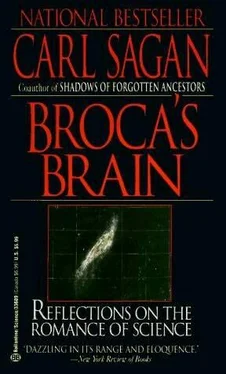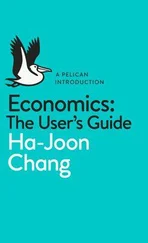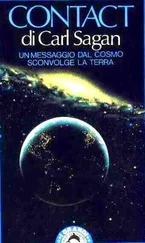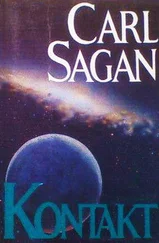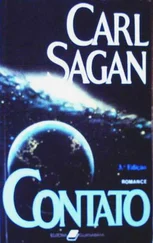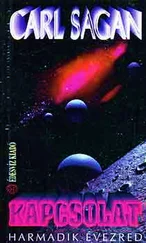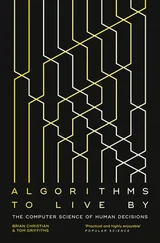Carl Sagan - Broca's Brain - The Romance of Science
Здесь есть возможность читать онлайн «Carl Sagan - Broca's Brain - The Romance of Science» весь текст электронной книги совершенно бесплатно (целиком полную версию без сокращений). В некоторых случаях можно слушать аудио, скачать через торрент в формате fb2 и присутствует краткое содержание. Жанр: Физика, на английском языке. Описание произведения, (предисловие) а так же отзывы посетителей доступны на портале библиотеки ЛибКат.
- Название:Broca's Brain: The Romance of Science
- Автор:
- Жанр:
- Год:неизвестен
- ISBN:нет данных
- Рейтинг книги:3 / 5. Голосов: 1
-
Избранное:Добавить в избранное
- Отзывы:
-
Ваша оценка:
- 60
- 1
- 2
- 3
- 4
- 5
Broca's Brain: The Romance of Science: краткое содержание, описание и аннотация
Предлагаем к чтению аннотацию, описание, краткое содержание или предисловие (зависит от того, что написал сам автор книги «Broca's Brain: The Romance of Science»). Если вы не нашли необходимую информацию о книге — напишите в комментариях, мы постараемся отыскать её.
Broca's Brain: The Romance of Science — читать онлайн бесплатно полную книгу (весь текст) целиком
Ниже представлен текст книги, разбитый по страницам. Система сохранения места последней прочитанной страницы, позволяет с удобством читать онлайн бесплатно книгу «Broca's Brain: The Romance of Science», без необходимости каждый раз заново искать на чём Вы остановились. Поставьте закладку, и сможете в любой момент перейти на страницу, на которой закончили чтение.
Интервал:
Закладка:
Who knows for certain? Who shall here declare it?
Whence was it born, whence came creation?
The gods are later than this world’s formation;
Who then can know the origins of the world?
None knows whence creation arose;
And whether he has or has not made it;
He who surveys it from the lofty skies,
Only he knows-or pernaps he knows not.
But the times we live in are very interesting ones. Questions of origins, including some questions relating to the origin of the universe, may in the next few decades be amenable to experimental inquiry. There is no conceivable answer to the grand cosmological questions which will not resonate with the religious sensibilities of human beings. But there is a chance that the answers will discomfit a great many bureaucratic and doctrinal religions. The idea of religion as a body of belief, immune to criticism, fixed forever by some founder is, I think, a prescription for the long-term decay of the religion, especially lately. In questions of origins and ends, the religious and the scientific sensibilities have much the same objectives. Human beings are built in such a way that we passionately wish to answer these questions-perhaps because of the mystery of our own individual origins. But our contemporary scientific insights, while limited, are much deeper than those of our Babylonian predecessors of 1,000 B.C. Religions unwilling to accommodate to change, both scientific and social, are, I believe, doomed. A body of belief cannot be alive and relevant, vibrant and growing, unless it is responsive to the most serious criticism that can be mustered against it.
The First Amendment to the United States Constitution encourages a diversity of religions but does not prohibit criticism of religion. In fact it protects and encourages criticism of religion. Religions ought to be subject to at least the same degree of skepticism as, for example, contentions about UFO visitations or Velikovskian catastrophism. I think it is healthy for the religions themselves to foster skepticism about the fundamental underpinnings of their evidential bases. There is no question that religion provides a solace and support, a bulwark in time of emotional need, and can serve extremely useful social roles. But it by no means follows that religion should be immune from testing, from critical scrutiny, from skepticism. It is striking how little skeptical discussion of religion there is in the nation that Tom Paine, the author of The Age of Reason , helped to found. I hold that belief systems that cannot survive scrutiny are probably not worth having. Those that do survive scrutiny probably have at least important kernels of truth within them.
Religion used to provide a generally accepted understanding of our place in the universe. That surely has been one of the major objectives of myth and legend, philosophy and religion, as long as there have been human beings. But the mutual confrontation of differing religions and of religion with science has eroded those traditional views, at least in the minds of many. [21]The way to find out about our place in the universe is by examining the universe and by examining ourselves-without preconceptions, with as unbiased a mind as we can muster. We cannot begin with an entirely clean slate, since we arrive at this problem with predispositions of hereditary and environmental origin; but, after understanding such built-in biases, is it not possible to pry insights from nature?
Proponents of doctrinal religions-ones in which a particular body of belief is prized and infidels scorned-will be threatened by the courageous pursuit of knowledge. We hear from such people that it may be dangerous to probe too deeply. Many people have inherited their religion like their eye color: they consider it not a thing to think very deeply about, and in any case beyond our control. But those with a set of beliefs they profess to feel deeply about, which they have selected without an unbiased sifting through the facts and the alternatives, will feel uncomfortably challenged by searching questions. Anger at queries about our beliefs is the body’s warning signal: here lies unexamined and probably dangerous doctrinal baggage.
Christianus Huygens wrote a remarkable book around 1670 in which bold and prescient speculations were made about the nature of the other planets in the solar system. Huygens was well aware that there were those who held such speculations and his astronomical observations objectionable: “But perhaps they’ll say,” Huygens mused, “it does not become us to be so curious and inquisitive in these Things which the Supreme Creator seems to have kept for his own Knowledge: For since he has not been pleased to make any farther Discovery or Revelation of them, it seems little better than presumption to make any inquiry into that which he has thought fit to hide. But these Gentlemen must be told,” Huygens then thundered, “that they take too much upon themselves when they pretend to appoint how far and no farther Men shall go in their Searches, and to set bounds to other Mens Industry; as if they knew the Marks that God has placed to Knowledge: or as if Men were able to pass those Marks. If our Forefathers had been at this rate scrupulous, we might have been ignorant still of the Magnitude and Figure of the Earth, or that there was such a place as America.”
If we look at the universe in the large, we find something astonishing. First of all, we find a universe that is exceptionally beautiful, intricately and subtly constructed. Whether our appreciation of the universe is because we are a part of that universe-whether, no matter how the universe were put together, we would have found it beautiful-is a proposition to which I do not pretend to have an answer. But there is no question that the elegance of the universe is one of its most remarkable properties. At the same time, there is no question that there are cataclysms and catastrophes occurring regularly in the universe and on the most awesome scale. There are, for example, quasar explosions which probably decimate the nuclei of galaxies. It seems likely that every time a quasar explodes, more than a million worlds are obliterated and countless forms of life, some of them intelligent, are utterly destroyed. This is not the traditional benign universe of conventional religiosity in the West, constructed for the benefit of living and especially of human beings. Indeed, the very scale of the universe-more than a hundred billion galaxies, each containing more than a hundred billion stars-speaks to us of the inconsequentiality of human events in the cosmic context. We see a universe simultaneously very beautiful and very violent. We see a universe that does not exclude a traditional Western or Eastern god, but that does not require one either.
My deeply held belief is that if a god of anything like the traditional sort exists, our curiosity and intelligence are provided by such a god. We would be unappreciative of those gifts (as well as unable to take such a course of action) if we suppressed our passion to explore the universe and ourselves. On the other hand, if such a traditional god does not exist, our curiosity and our intelligence are the essential tools for managing our survival. In either case, the enterprise of knowledge is consistent with both science and religion, and is essential for the welfare of the human species.
CHAPTER 24

Now entertain conjecture of a time
When creeping murmur and the poring dark
Fills the wide vessel of the universe.
WILLIAM SHAKESPEARE,
Henry V , Act IV, Prologue
IN THE EARLIEST myths and legends of our species, there is a common and understandable view of the cosmos: it is anthropocentric. There were gods, to be sure. But the gods had feelings and weaknesses and were very human. Their behavior was seen as capricious. They could be propitiated by sacrifice and prayer. They intervened regularly in human affairs. Various factions of gods supported opposing sides in human warfare. The Odyssey expresses a generally held view that it is wise to be kind to strangers: they may be gods in disguise. Gods mate with humans, and the offspring are generally indistinguishable, at least in appearance, from people. The gods live on mountains or in the sky, or in some subterranean or submarine realm-at any rate, far off. It was difficult unambiguously to come upon a god, and so it was hard to check a story told about the gods. Sometimes their actions were controlled by more powerful beings yet, as the Fates controlled the Olympian gods. The nature of the universe as a whole, its origin and fate, were not considered well understood. In the Vedic myths, doubt is raised not only about whether the gods created the world but even about whether the gods know who did create it. Hesiod in his “Cosmogony” says that the universe was created from (or maybe by) Chaos-perhaps only a metaphor for the difficulty of the problem.
Читать дальшеИнтервал:
Закладка:
Похожие книги на «Broca's Brain: The Romance of Science»
Представляем Вашему вниманию похожие книги на «Broca's Brain: The Romance of Science» списком для выбора. Мы отобрали схожую по названию и смыслу литературу в надежде предоставить читателям больше вариантов отыскать новые, интересные, ещё непрочитанные произведения.
Обсуждение, отзывы о книге «Broca's Brain: The Romance of Science» и просто собственные мнения читателей. Оставьте ваши комментарии, напишите, что Вы думаете о произведении, его смысле или главных героях. Укажите что конкретно понравилось, а что нет, и почему Вы так считаете.
